February Newsletter is out now!
Greetings from FUNGUO, and welcome to our February Newsletter!
It’s been a great and busy start of 2023, and it had been a while since we reached out to you via this platform. We are excited to announce that going forward we will endeavour to share more updates, stories and insights on a monthly basis. In addition to this, we welcome you to look out for our new Monthly Funguo Webinar Series that will be kicking off in March! In it, we will discuss amongst many other things, the innovative business solutions that we support.
In this edition of our newsletter, we are thrilled to share updates on our ongoing initiatives aimed at fostering a culture of innovation and collaboration in the development space. We continue to work with innovative minds and partners to promote sustainable development and accelerate the achievement of the Sustainable Development Goals (SDGs) through Innovation and technology.
Last year saw the successful unveiling of the first cohort of the FUNGUO Investees, a group of 26 innovative impact-driven startups that were selected through a meticulous and competitive funding process, and they continue to make a huge difference. From this, we bring to you their exciting highlights and insights. We also share insights on upcoming events and opportunities for you to engage and contribute to our programme’s goals. As always, we welcome your feedback and suggestions on how we can continue to improve and make a bigger impact.
Finding Opportunities in Adversity: How the COVID-19 Pandemic Sparked a Booming New Business Venture – The Story of Rosho Tanzania
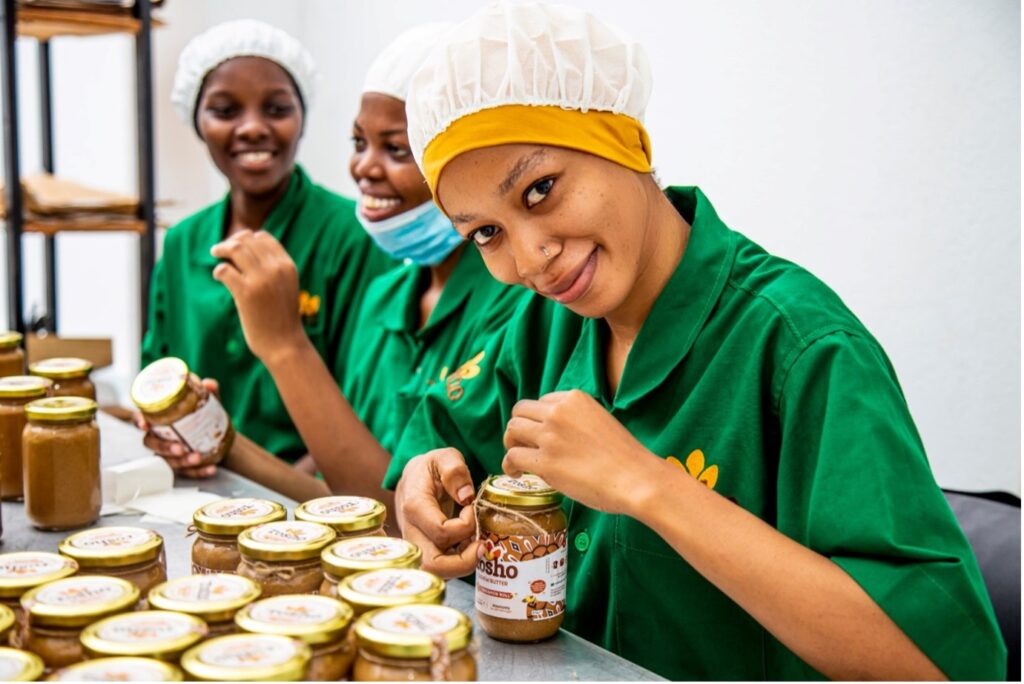
A visit to FUNGUO investee, Mastermind Ventures Ltd commonly known by their trade name “Rosho Tanzania” clearly showed that this start-up was not only shaking up Tanzania’s food industry, but also spreading their wings to Kenya, Malawi, Dubai, UAE, UK and Canada with its new line of gourmet nut butters. The startup is the first in the country to offer a range of delicious and healthy cashew nut butters, made from high-quality ingredients and crafted with care.
Co-founder Mohamed Hussein Rashid, saw his large consignment of organic cashew nuts stranded after the closure of all international gateways, due to the surge of the COVID-19 pandemic. He was faced with a tough choice: either forfeit his investment or come up with an innovative solution.
Sabiha Rashid, his wife and co-founder, then became inspired to create a line of nut butters that would offer consumers a tasty and healthy alternative to traditional spreads and snacks. From there, Rosho was born with the use of only the finest ingredients, including locally sourced organic nuts, to create its gourmet nut butters. Each flavour was carefully crafted to provide the perfect balance of taste and nutrition, with no added sugars or artificial preservatives. The nut butters continue to be gluten-free, vegan-friendly, and contain high levels of healthy fats and protein, making them the ideal snack for anyone looking to maintain a healthy lifestyle. In addition to all this, Rosho remains to be an impact driven venture – with its recruit women only principle.
Shedding Light on Education: The Passionate Social Entrepreneur Providing Solar Bags for Children in Need
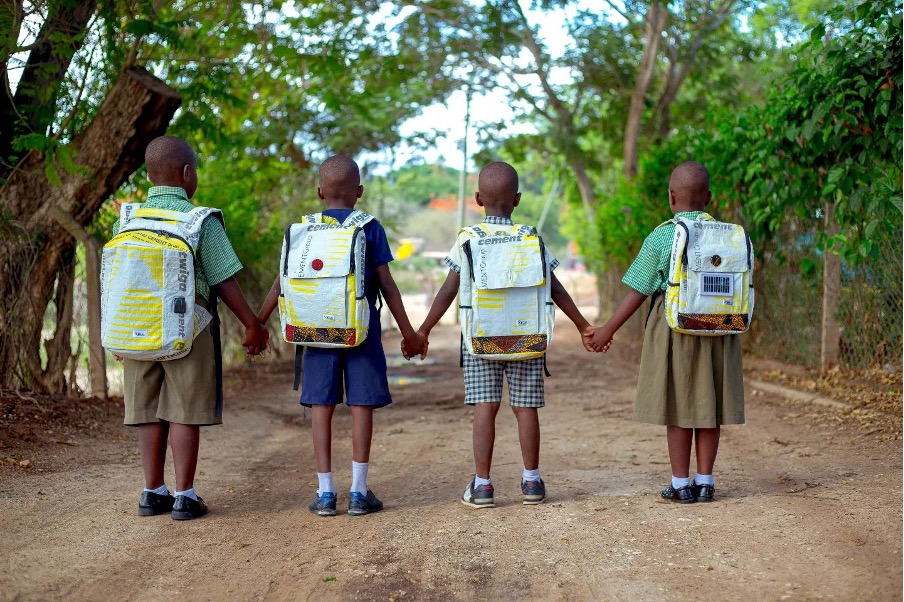
Access to electricity can make all the difference in a child’s education, especially in rural areas where it may be limited or non-existent. Without it, children are unable to read or study at night, which can have a significant impact on their education. Our investee SOMABAGS recognized the importance of education in helping children break the cycle of poverty and thus found an ingenious solution to this problem through their African-styled solar school bags made from recycled cement bags. They realized that with access to light, many children were would then be able to study or read at night, which would increase their ability to learn and succeed in school.
Moreover, the bags fashioned out of reused cement bags ensured durability and longevity. They were outfitted with a solar panel and a battery to recharge during daylight hours, powering the bag’s LED light for night-time use. Additionally, a USB port was included to enable the charging of mobile phones and other small electronic gadgets.
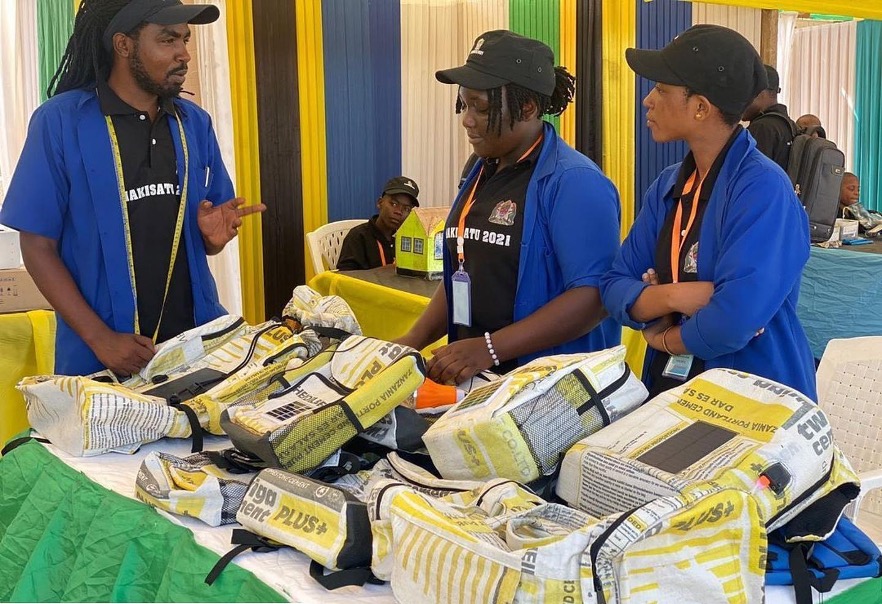
SomaBags’ commitment to education is having a concrete impact on the lives of students in villages in Mwanza and beyond. Consequently, SomaBags was established to address this problem by providing a sustainable and practical solution.
Revolutionizing the Fight Against Deforestation: How One Startup is Turning Plastic Waste into Construction Materials
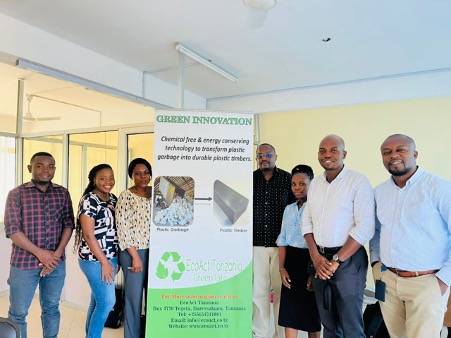
Plastic waste remains a significant environmental issue that has long-lasting effects on our planet. Every year, millions of tons of plastic waste end up in landfills or the ocean, taking hundreds of years to decompose, thereby harming wildlife, and releasing toxic chemicals into the environment.
In addition to plastic waste, deforestation is another environmental problem that has a severe impact on our planet. Trees are cut down at an alarming rate, primarily to produce wood and paper products. Deforestation results in a loss of biodiversity, soil erosion, and greenhouse gas emissions that contribute to climate change.
In between these, is where EcoAct swiftly swoops in. EcoAct is a social enterprise established to address the challenges of post-consumer plastic pollution, waste management and climate change. They are at the forefront of the sustainable materials industry. Their technology allows them to transform plastic waste into a plastic lumber that are sturdy, durable, and resistant to rot, moisture, and insects, all the while requiring no maintenance or sealing. This then becomes an ideal material for outdoor applications, such as decking, fencing, and park furniture. Converting plastic waste into plastic lumber is a smart and innovative solution that can help reduce plastic waste, conserve resources, and save trees from being cut down. It’s definitely a win-win situation for everyone.
From Classroom to Boardroom: Law School Friends' Journey to Entrepreneurship
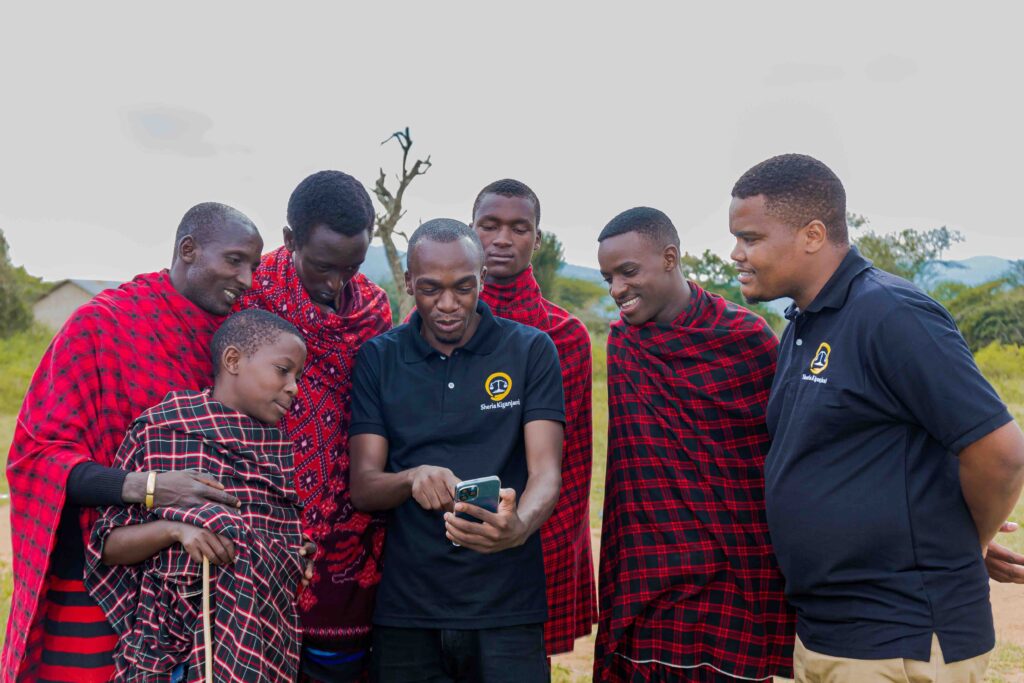
What many would have found to be a tedious four-year tenure studying law, consumed with endless exams, recurrent course works, practical trainings, and examinations, was a completely different experience for three students, Neema Magimba, Nabiry Juma and Chrysostom Bwemo, who used not only the time, but also the networks and expertise, to identify key issues within the society pertaining to access to justice for all, and to start a brand-new business they called Sheria Kiganjani.
“In addition to tremendously high legal fees,” Neema, the co-founder of Sheria Kiganjani said, “citizens also have to bear the cost of travel, accommodation and other expenses, when seeking access to justice and legal aid. Recognizing that legal knowledge is a right and responsibility of every member of society, the founders of Sheria Kiganjani have taken it upon themselves to establish a system of access to legal services through the internet. The aim is to significantly reduce the cost of legal services by over 80% compared to current costs, thereby making them more affordable and accessible to a wider range of citizens, particularly those living in rural areas or with limited financial means.”
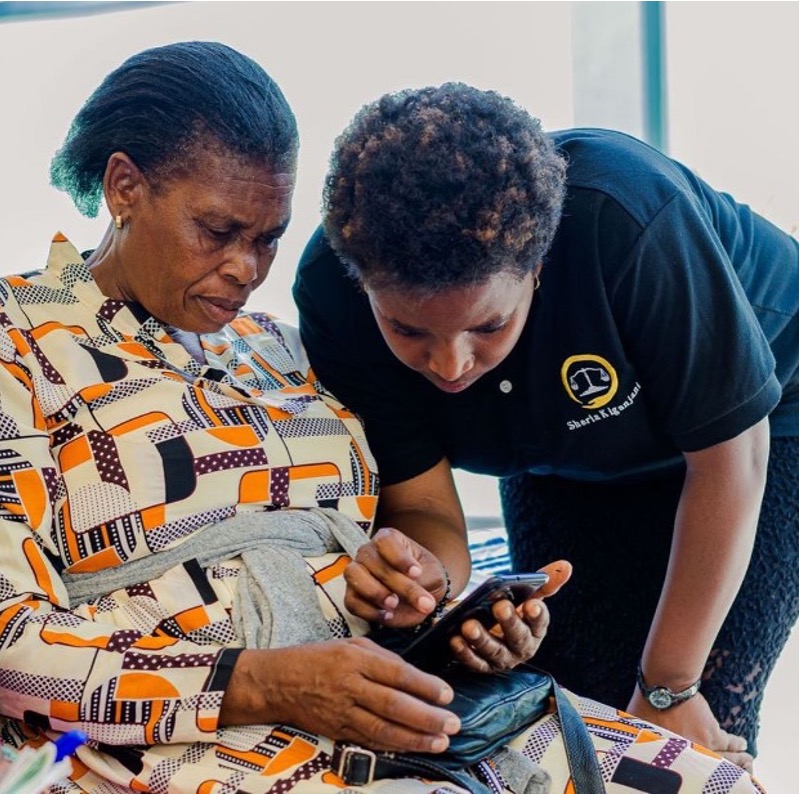
The business: Sheria Kiganjani, is continuing to revolutionize access to justice for low and middle-income earners. They designed a digital app that provides a wide range of legal services to people who may otherwise struggle to access legal representation.
The startup’s digital app offers a range of services, including legal advice, document preparation, and representation in court. The app is easy to use and provides users with clear and concise information about their legal rights and obligations. It is also affordable, with fees for legal services that are significantly lower than traditional law firms.
Making Waves in the Fishing Industry: Two Startups Score Government Tenders for Aquaculture
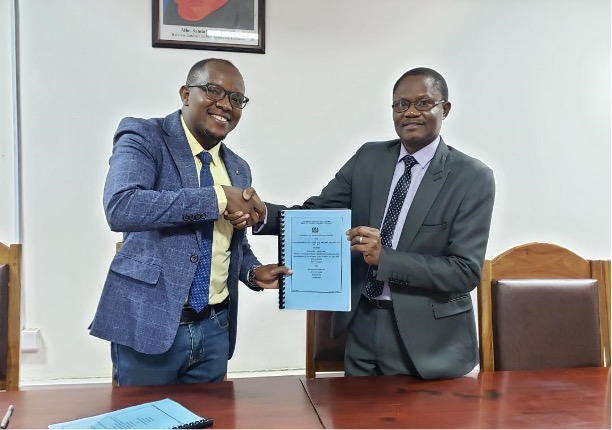
Acquacom and KCG Aquatec Fish Farming Ltd are both pioneering sustainable fish farming practices in Tanzania. Acquacom utilizes innovative closed-loop aquaculture systems that reduce water, waste, and energy consumption while maximizing fish production, while KCG Fish Farming Ltd acknowledges that due to water scarcity and challenging environments, traditional fishing activities are not feasible for many Tanzanians, and have therefore developed modern cages for fishing activities in the sea, lake, river, or creek, enabling fishermen to take advantage of these opportunities.
For their innovative solutions, Acquacom (pictured above) secured a government tender amounting to TZS2.65 billion (USD 1.34 million), to provide galvanized steel cages and HDPE Fish cages to Cage Fish Farmers from Lake Victoria, as government loan beneficiaries from the Tanzania Agricultural Development Bank (TADB).
In addition to this, KCG (pictured below) also won a tender amounting to TZS2.7 billion (USD 1.36 million), to supply 245 fish cages and 4 million Tilapia fingerlings to various fish farming groups, companies, cooperative unions, and individual fish farmers in the Lake Zone region. This contract is part of the Blue Economy National Project, an initiative launched by the Tanzanian government to promote sustainable economic development and environmental conservation in the region.
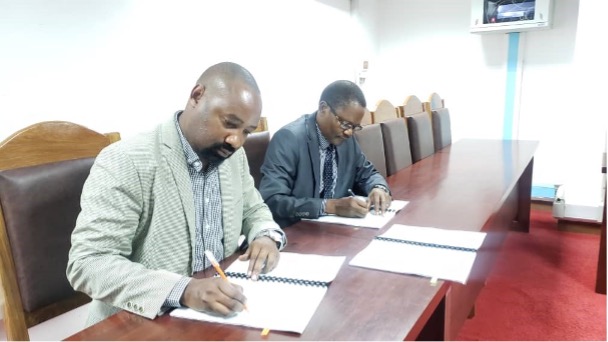
A Spotlight on the Innovation Ecosystem
We are grateful for your support and commitment to our mission. We hope that the stories and updates in this newsletter inspire you to continue exploring innovative solutions to some of the most pressing challenges facing our world today.
The Funguo Innovation Program Team.